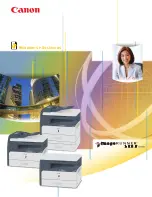
[Notes] •
If d is outside of the speci
fi
ed range, the printer prints the following message: “BAR CODE
GENERATOR IS NOT OK!” and processes the data which follows as normal data.
• If the horizontal size exceeds the printing area, the printer only feeds the paper.
• This command feeds as much paper as is required to print the bar code, regardless of
the line spacing speci
fi
ed by $1B $32 or $1B $33.
• After printing the bar code, this command sets the print position to the beginning of the
line.
• This command is not affected by print modes (emphasized, double-strike, underline or
character size), except for upside-down and justi
fi
cation mode.
[Notes per
n
]
• This command ends with a NUL code.
• When the bar code system used is UPC-A or UPC-E, the printer prints the bar code data
after receiving 11 (without check digit) or 12 (with check digit) bytes bar code data.
• When the bar code system used is EAN13, the printer prints the bar code data after
receiving 12 (without check digit) or 13 (with check digit) bytes bar code data.
• When the bar code system used is EAN8, the printer prints the bar code data after
receiving 7 (without check digit) or 8 (with check digit) bytes bar code data.
• The number of data for ITF bar code must be even numbers. When an odd number of
data is input, the printer ignores the last received data.
[Notes per
o
] •
If
n
is outside of the speci
fi
ed range, the printer stops command processing and proc-
esses the following data as normal data.
When CODE93 is used:
• The printer prints an HRI character ( o ) as a start character at the beginning of the HRI
character string.
• The printer prints an HRI character ( o ) as a stop character at the end of the HRI char-
acter string.
• The printer prints an HRI character ( n ) as a control character ( $00 to $1F and $7F).
When CODE128 is used:
• When using CODE128 in this printer, please note the following regarding data transmis-
sion:
• The top part of the bar code data string must be a code set selection character (CODE
A, CODE B or CODE C) which selects the
fi
rst code set.
• Special characters are de
fi
ned by combining two characters “{“ and one character. ASCII
character “{” is de
fi
ned by transmitting “{“ twice, consecutively.
SPECIFIC
CHARACTER
DATA TRANSMISSION
ASCII HEX Decimal
SHIFT
{S
7B, 53
123, 83
CODE A
{A
7B, 41
123, 65
CODE B
{B
7B, 42
123, 66
CODE C
{C
7B, 43
123, 67
FNC1
{1
7B, 31
123, 49
FNC2
{2
7B, 32
123, 50
FNC3
{3
7B, 33
123, 51
FNC4
{4
7B, 34
123, 52
‘{‘
{{
7B, 7B
123, 123
ESC/POS™ Emulation
62
Command Reference
Summary of Contents for KPM300
Page 72: ...Blank page ESC POS Emulation 72 Command Reference ...
Page 127: ......
















































